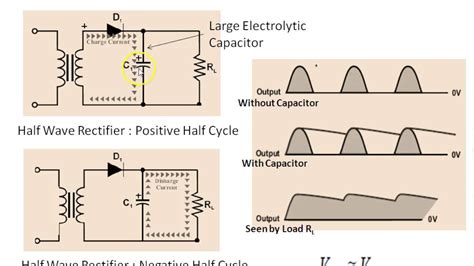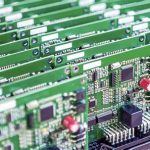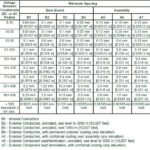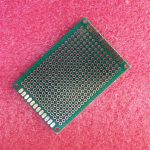Understanding the Basics of Filter capacitors
What is a Capacitor?
A capacitor is a passive electronic component that stores electrical energy in an electric field. It consists of two conducting plates separated by a dielectric material, which can be air, paper, ceramic, or electrolytic solution. The capacitance of a capacitor is measured in farads (F) and determines its ability to store charge.
Types of Capacitors
There are several types of capacitors, each with its own characteristics and applications:
| Type | Description | Applications |
|---|---|---|
| Ceramic Capacitors | Made of ceramic dielectric material, offer high stability and low loss | High-frequency circuits, resonant circuits, coupling/decoupling |
| Film Capacitors | Use plastic film as dielectric, offer high insulation resistance and low loss | Audio circuits, power supplies, motor starting |
| Electrolytic Capacitors | Use electrolytic solution as dielectric, offer high capacitance values | Power supplies, audio amplifiers, DC blocking |
| Tantalum Capacitors | Use tantalum oxide as dielectric, offer high capacitance and low leakage | Portable devices, high-frequency circuits, decoupling |
The Role of Filter Capacitors
Filter capacitors are specifically designed to smooth out voltage fluctuations and reduce noise in power supply circuits. They are typically placed across the power supply lines, parallel to the load, to provide a low-impedance path for AC signals while blocking DC current.
How Filter Capacitors Work
Smoothing Voltage Ripples
One of the primary functions of a filter capacitor is to smooth out voltage ripples in DC power supplies. Rectifiers convert AC voltage to DC, but the resulting DC voltage contains ripples due to the nature of the rectification process. These ripples can introduce noise and affect the performance of the connected components.
Filter capacitors act as a reservoir, storing energy during the peaks of the ripple and releasing it during the troughs, effectively smoothing out the voltage waveform. The larger the capacitance value, the better the filtering effect.
Reducing Noise
In addition to smoothing voltage ripples, filter capacitors also help reduce high-frequency noise in power supply lines. Noise can be generated by various sources, such as switching regulators, digital circuits, or external interference.
By providing a low-impedance path to ground for high-frequency signals, filter capacitors effectively bypass the noise, preventing it from reaching sensitive components. This is especially important in audio circuits, where noise can introduce unwanted hum or distortion.
Decoupling and Bypassing
Filter capacitors are also used for decoupling and bypassing purposes in digital circuits. Decoupling capacitors are placed close to the power pins of integrated circuits (ICs) to provide a local source of clean power and minimize the effects of power supply noise.
Bypassing capacitors, on the other hand, are used to provide a low-impedance path for high-frequency signals, preventing them from propagating through the circuit board and causing interference.
Selecting the Right Filter Capacitor
Capacitance Value
The capacitance value of a filter capacitor depends on the specific application and the amount of filtering required. Larger capacitance values provide better filtering but also increase the size and cost of the component.
For power supply filtering, the capacitance value is typically chosen based on the ripple current and the desired ripple voltage. The following formula can be used to estimate the required capacitance:
C = I / (2 × π × f × Vripple)
Where:
– C is the capacitance in farads (F)
– I is the ripple current in amperes (A)
– f is the ripple frequency in hertz (Hz)
– Vripple is the desired ripple voltage in volts (V)
Voltage Rating
The voltage rating of a filter capacitor must be higher than the maximum expected voltage in the circuit. It is recommended to choose a capacitor with a voltage rating at least 50% higher than the peak voltage to ensure reliable operation and prevent premature failure.
Equivalent Series Resistance (ESR)
The equivalent series resistance (ESR) of a capacitor is an important parameter that affects its performance in filtering applications. A lower ESR value indicates better filtering efficiency and lower power dissipation.
Electrolytic capacitors typically have higher ESR values compared to ceramic or film capacitors, which can limit their effectiveness in high-frequency applications. Low-ESR capacitors, such as polymer electrolytic or multilayer ceramic capacitors, are preferred for high-performance filtering.

Applications of Filter Capacitors
Filter capacitors find use in a wide range of electronic applications, including:
-
Power Supplies: Filter capacitors are essential components in linear and switching power supplies, where they smooth out voltage ripples and provide a stable DC output.
-
Audio Circuits: In audio amplifiers and preamplifiers, filter capacitors help reduce noise and improve signal quality by filtering out unwanted frequencies.
-
Digital Circuits: Decoupling and bypassing capacitors are used extensively in digital circuits to minimize power supply noise and prevent high-frequency interference.
-
Motor Drives: Filter capacitors are used in motor drive circuits to smooth out voltage fluctuations and protect the motor from voltage spikes.
-
Telecommunications: In telecommunication systems, filter capacitors are used to filter out noise and ensure clean power supply to sensitive components.
Frequently Asked Questions (FAQ)
-
What happens if a filter capacitor fails?
If a filter capacitor fails, it can lead to increased ripple voltage, noise, and instability in the power supply. In severe cases, it may cause the connected components to malfunction or even damage them. -
Can I replace a filter capacitor with a higher capacitance value?
Yes, you can replace a filter capacitor with a higher capacitance value, as long as the voltage rating and physical size are appropriate for the circuit. A higher capacitance value will provide better filtering but may also increase the cost and size of the component. -
How often should filter capacitors be replaced?
The lifespan of a filter capacitor depends on factors such as operating temperature, voltage stress, and ripple current. Electrolytic capacitors, in particular, have a limited lifespan and may need to be replaced every few years in demanding applications. It is important to monitor the performance of filter capacitors and replace them proactively to avoid failures. -
Can I use a polarized capacitor as a filter capacitor?
Polarized capacitors, such as electrolytic capacitors, can be used as filter capacitors in DC circuits, but they must be connected with the correct polarity. Reversing the polarity can cause the capacitor to fail and even explode. Non-polarized capacitors, such as ceramic or film capacitors, are preferred for AC filtering applications. -
What is the difference between a filter capacitor and a decoupling capacitor?
While both filter and decoupling capacitors serve to reduce noise and maintain stable power supply, they have slightly different roles. Filter capacitors are used to smooth out voltage ripples and filter low-frequency noise in power supply lines, while decoupling capacitors are placed close to individual components to provide local filtering and minimize high-frequency noise.
Conclusion
Filter capacitors are vital components in electronic circuits, responsible for reducing noise, smoothing voltage fluctuations, and ensuring stable power supply. Understanding the types, characteristics, and applications of filter capacitors is essential for designing robust and reliable electronic systems.
By selecting the appropriate capacitance value, voltage rating, and ESR, designers can optimize the performance of filter capacitors in various applications, from power supplies to audio circuits and digital systems.
As electronic devices continue to advance in complexity and performance, the role of filter capacitors in maintaining signal integrity and power supply stability becomes increasingly critical. Proper selection, placement, and maintenance of filter capacitors are key to ensuring the long-term reliability and functionality of electronic systems.






Leave a Reply